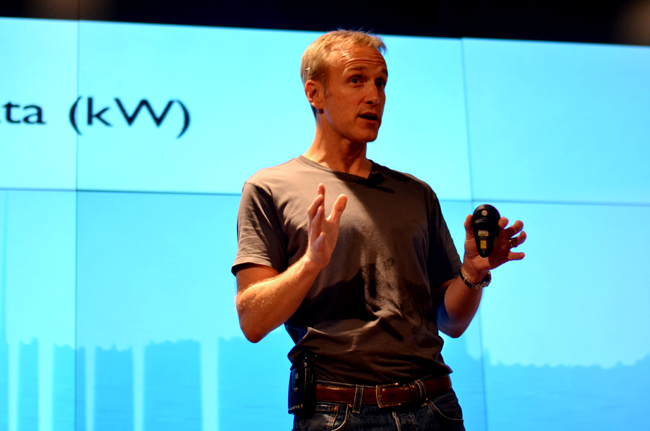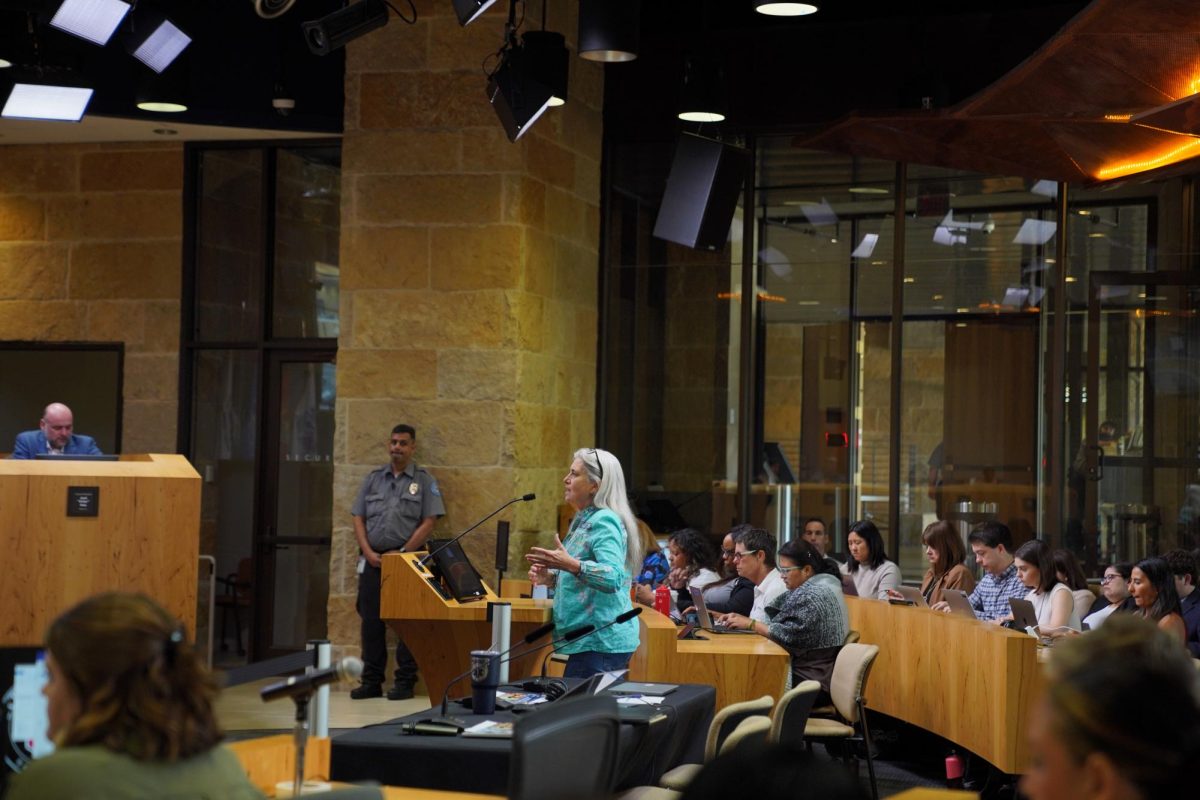Austin-based smart grid researchers conducted field trials in the North Austin Mueller neighborhood and found more efficient ways to place solar panels and measure energy consumption.
The preliminary results of Pecan Street Inc.’s research on smart grid technology present ways to boost energy efficiency in residential and commercial appliances. At the Austin Forum presentation on June 5, Brewster McCracken, executive director of Pecan Street Inc., said his team noticed interesting patterns in consumer energy use during the two-year study of Mueller.
“We’re not yet sure about everything that could be done with all this data that we’ve collected, but already we have noticed important trends,” McCracken said. “One of which is that west-facing solar panels almost supply the total energy demands of consumers during peak times.”
McCracken said there are certain times of day that have peak energy demands, differing between weekdays and weekends.
“With the data acquired from smart grids, you can see the exact time that electricity consumption is at its highest,” McCracken said. “And even more importantly, you can see what devices are using what amount of electricity.”
Collecting data on every appliance in a household isn’t without its risks, McCracken said.
“Of course, privacy with [large amounts of] data is also a big concern,” McCracken said. “With access to that data, the wrong person could tell when you’re not home and then rob it, or an insurance company could figure out if you have become liable because you are using some kind of medical device.”
Because of this, it would be difficult to make the data open source, but there is still room for application developers to figure out how to manipulate the data to make life easier for everyone, McCracken said.
Ross Baldick, electrical and computer engineering professor, said the current state of electrical grid technology applies to energy usage monitoring and how energy goes from production to transmission.
“Smart grid means different things to different people,” Baldick said. “Arguably, the generation and transmission part of the grid, together with the system operator, is already quite smart.”
Baldick said smart grid technology could be used to save consumers money on their electrical bill by targeting inefficient appliances.
“Often, people also include home energy management as an example of smart grid [technology], although I’m not sure I would strictly consider my home as part of the grid,” Baldick said. “The benefits of automating your home energy could be increased ability for consumers to keep track of energy usage, like receiving an email when your AC is performing less efficiently than it should, and helping improve [power stability].”
Juan Ontiveros, executive director of Utilities and Energy Management at UT said the University uses smart grid technology to monitor and manage its energy use.
“We have been using the smart grid approach as it applies to our total energy production for about seven years,” Ontiveros said. “We have installed a real time digital control system to manage the electrical distribution from our power generation and back up power from Austin Energy to our campus buildings.”
Ontiveros said UT’s energy management system can intelligently manage power outages without causing disruptions on campus.
“Shutting down chilled water production has thus far been sufficient to sustain our power production when [there are shortages],” Ontiveros said. “Normally we can do this without the campus even knowing we had an issue. We have not had to shed other campus facilities thus far. We work hard to avoid this issue.”
Ontiveros said UT’s system has proved effective for decades and the University hopes to add to their smart grid capabilities.
“Campus reliability is one of the primary benefits [of the smart grid] and this has served us well for 40 years since we have only experienced three campus-wide power outages in this period,” Ontiveros said. “The University is already expanding the digital power management grid to import facility electrical information to indicate and diagnose problems in the facilities faster.”





















